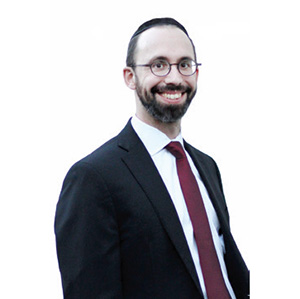
In 2017, a painting by Leonardo Da Vinci known as “Salvator Mundi” went on auction at Christie’s in New York. The winning bid, made by a Saudi prince, was $450 million. Incredible! Someone was willing to pay half a billion dollars for a rare painting.
In Parshat Vayeitzei, we also find a high price being paid. Yaakov worked day and night for seven full years tending to Lavan’s flock in order to earn the hand of Rochel in marriage. However, the pasuk says regarding Yaakov, those seven years seemed like just a few days.
Seven years…like a few days? Really? Yes, because Yaakov realized Rochel was his perfect match. Seven years of work was a small price to pay to marry the future mother of Yosef and Binyamin.
In Parshat Toldot, we have the opposite scenario—the biggest fire sale in history! For the price of a $5 bowl of lentil soup, the first-born twin, Esav, sold his full birthright, including the priesthood and the right to serve in the Beit Hamikdash (Rashi).
Some might wonder if this was a valid sale. The halacha states if someone over- or under-charges more than a sixth of the value of an item, the sale is null and void. The value or reward in the next world for serving in the priesthood is beyond imagination! As it states in Pirkei Avot (4:22), a single hour of olam haba (the next world) is far greater than all the pleasures a man could possibly have in his entire lifetime. How could Yaakov legitimately buy something so valuable for a bowl of lentil soup?
Rav Elchanan Wasserman explains that every mitzvah is priceless, but each person can assign it his own value. As such, the value we place on a mitzvah personally matches the reward we will receive for its fulfillment. For Esav, the spiritual empire of the priesthood and Beit Hamikdash was worth a bowl of soup. Therefore, Yaakov paid an honest price.
This gives insight to the Gemara which tells us that the wicked get rewarded in this world for their good deeds. How so? We know a lifetime of pleasure can’t compare to a moment in olam haba! Rav Wasserman explains that the wicked value their earthly pleasures more than a spiritual connection to the Almighty.
A few years ago at the PTI annual dinner, Rabbi Paysach Krohn told the story of Aaron Goldstein, who was visiting Eretz Yisroel. At 1 a.m., he was about to go to sleep but remembered he hadn’t davened maariv. Where could he find a minyan at this hour? He remembered a place called Zichron Moshe in the Geula neighborhood of Yerushalayim where one could find a minyan at all hours of the day. Aaron took a taxi there and saw two other guys. He opened a Gemara and reviewed the daf while he waited. After twenty minutes, there was still no minyan.
Suddenly, an idea popped into his head. He called Bar Ilan taxi, which has all Jewish drivers, to send seven taxis. “It’s 2 a.m., why do you need so many taxis?” asked the dispatcher, thinking this was a prank. “I have a big event and need a lot of taxis,” Aaron said. The seven taxis converged onto Zichron Moshe. “Where are all the people?” yelled one of the drivers. “Is this some prank?” Aaron came out with a wad of bills in his hand. “This is not a prank. I have yahrzeit and need a minyan for maariv and to say kaddish. Please come pray with me. I will pay your full fare. Start your meters now.” This was a first…for all of them! One taxi driver donned a yarmulke and entered the shul. The rest followed. Aaron davened maariv clearly and appropriately, not caring about the ticking of the meters. After the last kaddish, Aaron pulled out his wad of bills to pay each driver. The drivers refused. “We can’t take your money. We need to thank you for allowing us to daven maariv and answer amen to your kaddish. We will not take money for participating in this mitzvah,” they said.
In this story, davening maariv and saying kaddish with a minyan was worth 560 shekels to Aaron. To the taxi drivers, the mitzvah was priceless—no fare amount was worth it.
Each day, such choices present themselves. Which priceless item will we value most—a worldly pleasure such as a rare painting, or a mitzvah leading to a portion in olam haba? May we all have the good judgment to make choices which are truly beneficial for us.
Rabbi Baruch Bodenheim is the associate rosh yeshiva of Passaic Torah Institute (PTI)/Yeshiva Ner Boruch. PTI has attracted people from all over northern New Jersey, including Teaneck, Paramus, Rockaway and Fair Lawn. He initiated and continues to lead a multi-level Gemara-learning program. He has spread out beyond PTI to begin a weekly beis medrash program with in-depth chavrusa learning in Livingston, Springfield, and Fort Lee. His email is [email protected].













